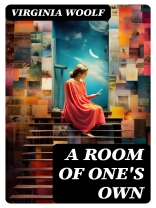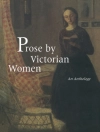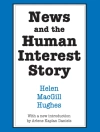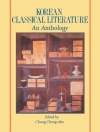In ‘A Room of One’s Own, ‘ Virginia Woolf masterfully intertwines feminist critique with a meditation on the conditions necessary for artistic creation, advocating for women’s intellectual and economic independence. Written in an engaging, essayistic style, the work navigates the intersections of gender, literature, and society during the early 20th century. Woolf employs a stream-of-consciousness technique, infusing her arguments with personal anecdotes and a compelling narrative voice, thus challenging the patriarchal constraints that have historically silenced women writers. The text resonates within the literary context of modernism, breaking boundaries and urging a reevaluation of established norms regarding authorship and gender roles. Virginia Woolf, a prominent modernist writer and integral figure in the Bloomsbury Group, drew upon her own experiences of limited opportunities as a woman in the literary sphere. Influenced by the socio-economic realities of her time, Woolf’s reflections stem from her desire to illuminate the struggles and talents of women writers who lacked the freedom to express themselves. Her rich intellectual background and commitment to feminist ideals uniquely position her to tackle the systemic barriers inhibiting female creativity. I highly recommend ‘A Room of One’s Own’ to readers seeking a profound exploration of the interplay between gender and literature. Woolf’s incisive insights and powerful arguments not only shed light on the historical injustices faced by women writers but also encourage contemporary audiences to continue the dialogue about gender equity in literature and beyond.
عن المؤلف
Virginia Woolf, born Adeline Virginia Stephen on January 25, 1882, in London, England, stands as a central figure of modernist literature. Her literary career is marked by a distinctive lyrical prose style and a deep exploration into the inner lives of her characters, often through a stream-of-consciousness narrative. Woolf’s writing reveals a keen intellect and a profound understanding of human psychology, feminism, and the intricacies of social dynamics.
Her seminal work, ‘A Room of One’s Own’ (1929), is an extended essay that deftly employs a fictional narrative to argue for both a literal and figurative space for women writers within a literary tradition dominated by men. This piece is regarded not only as a feminist text but as an influential commentary on women’s roles in society and the struggle for creative and intellectual freedom. The essay famously posits that ‘a woman must have money and a room of her own if she is to write fiction, ‘ suggesting that the patriarchal society of her time hindered women’s artistic opportunities and personal growth.
Woolf was a member of the Bloomsbury Group, which fostered a rich exchange of intellectual and artistic ideas among its members. Throughout her career, Woolf also published novels such as ‘Mrs. Dalloway’ (1925), ‘To the Lighthouse’ (1927), and ‘Orlando’ (1928), further cementing her reputation as an innovative writer. Her works continue to draw scholarly interest and are celebrated for their depth, stylistic innovation, and powerful insights into the human condition. Woolf’s legacy endures as her writings remain a cornerstone in the study of modern literature. She died on March 28, 1941, near Lewes, in Sussex, England.












